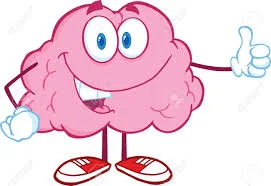Dr. Albert Ellis uses the term ‘upsetness’ to describe a persons’ emotional discomfort when something unwanted has occurred. He says the intensity of the person’s ‘upsetness’ is not caused directly by the event or happening itself. Of course the event has a bearing on the emotional and behavioural outcome but that’s not the whole story.
 |
| Dr. Albert Ellis, creator of REBT |
A young 7
year old student at my school was out of sorts; crying and quite inconsolable. After a while
when he had gathered himself a little, we began to chat about what had
happened. His favourite squishy toy had a small puncture and it was oozing its
white fluid contents.
He clearly
saw this as a significant unwanted occurrence that initially triggered extreme
emotional discomfort. Why did he feel as he did? Or more specifically why was
his emotional response to the situation so extreme?
Firstly, why is the child’s emotional response considered extreme? We can agree that the child was feeling upset but perhaps that may not best describe the intensity of his upset. A word that comes to mind is ‘distraught’ to describe his emotional state and this would register pretty high up on the emotional thermometer, where upset might rate lower.
 |
| The Emotional Thermometer |
To feel
annoyed or upset is, according to REBT (Rational Emotive Behaviour Therapy), a
healthy negative emotion in that it doesn’t render the person incapable of
going about their daily business. The situation would be deemed a minor
inconvenience rather the catastrophe it appears to be in this case. Distraught,
conversely, is regarded as an unhealthy negative emotion in that the person
experiencing it may be disabled for a while; so upset they can’t go about the
normal day to day things they would ordinarily be doing.
So why ‘distraught’
and not ‘upset?’ REBT describes a habit of thinking called ‘catastrophising’, where
the person believes that what has happened is indeed a catastrophe; the worst
thing that can ever happen! This is true for this young child, as at that moment
in time he believes that the fact his squishy toy is broken is so awful a
happening that he cannot abide the reality (to him) that it has happened.
Dr. Ellis
explains when a person has constructed a belief that ‘things must always
be as I want them to be’ and that it’s ‘not fair when they don’t and that it’s
the worst thing that could ever happen!’ they will find themselves feeling
distraught rather than upset when things go awry. Indeed, it may be so bad and
awful (awfulising)
that it cannot be tolerated (Icantstandititis!).
It may be or become a characteristic of that person’s general disposition;
something peculiar to him.
Ellis believed we are the architects of our own misery or happiness because we construct the beliefs that underlie our emotional and behavioural dispositions. If it is that this young child is constructing a self-defeating belief like ‘things must always be as I want them to be’ how can this be addressed? What can the educator, carer, counsellor do?
 |
| Constructivism |
If we
accept that our young students’ emotional and behavioural responses to unwanted
events is due to his developing (in construction) beliefs about how the world ‘should’
work then we may be able to help him deconstruct and rework those ideas and
perspectives to accommodate a more rational world view.
After the
young person had gathered himself we talked about the possibility that even
though his broken toy constituted a major disruption to his life, could he help
himself feel better now and if other ‘bad’ things happen again?
- v We established that what happened was true (a fact) i.e. his toy was broken.
- v We agreed that we both thought the toy was broken and that others would also agree with us.
- v We talked about what he thought about what happened and decided that this was not true for everyone; not a fact, because different people would think differently about it.
- v We talked about other bad things that can possibly happen e.g. hurting his leg, his dog falling ill etc. and we constructed a list of possible problems. We constructed a catastrophe scale.
- v We talked about where the broken toy event fits in the scale and we agreed that it registered far below other more serious possible happenings.
- v We agreed that his broken toy event was not the worst thing that could happen and it wasn’t a catastrophe.
We wrote
down old thinking and new thinking as follows:
- v Old thinking: ‘My toy is broken and
it is the worst thing that can ever happen. It shouldn’t have happened and I can’t
stand it.’
- v New thinking: ‘My toy is broken but there are other worse things that can happen. This is not the worst thing
can ever happen and I can stand it’ (I accept it has happened).
Old
thinking: Distraught. New thinking: Upset
The young person would have to work on himself because his default position is ‘things must be the way I want them to be’ but as time goes by and he works hard to remind himself, the ‘distraught’ emotional events will become rarer as he reconstructs his new, more robust way of thinking and believing!

















